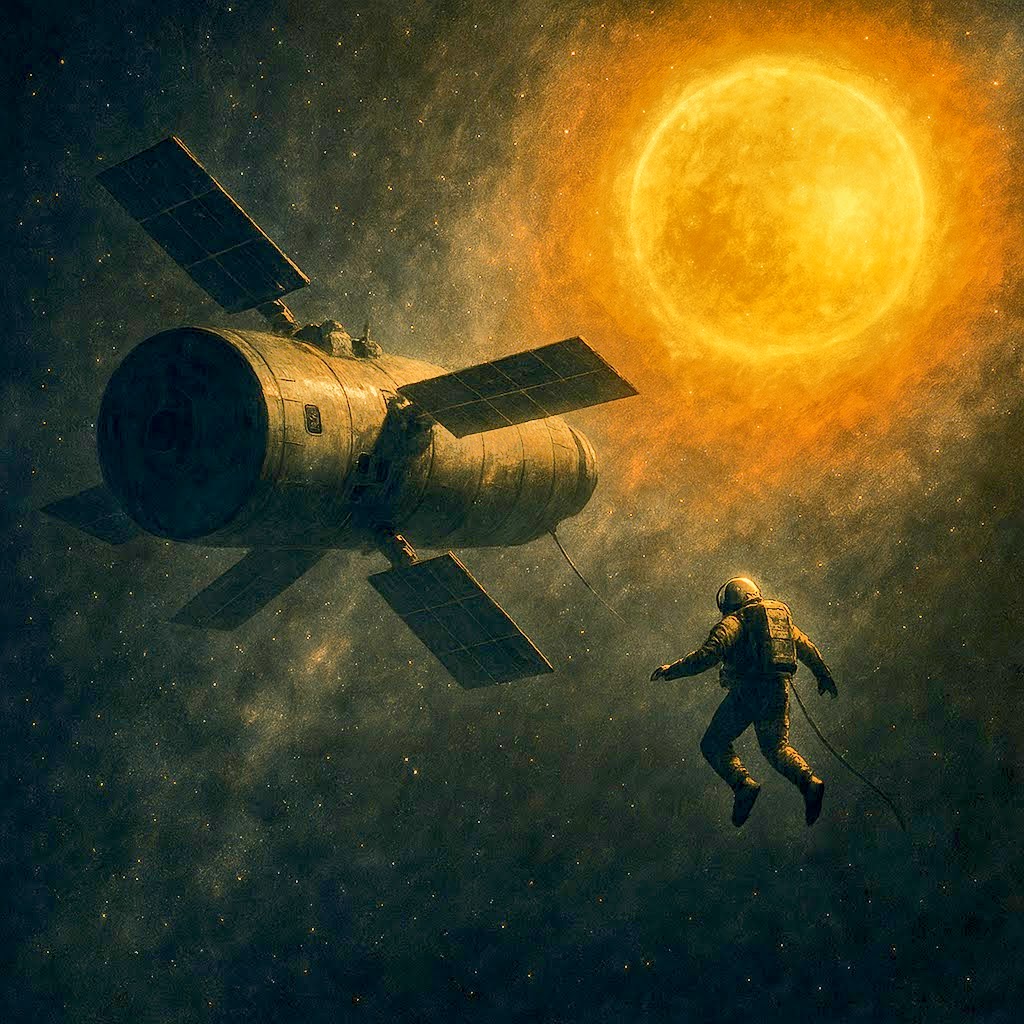Project Hail Mary: A Blind Dive into Hard Sci-Fi
I have to admit, I still haven’t read The Martian by Andy Weir. While I enjoyed the movie, I never quite got into the mood for the novel, despite its high recommendations. Perhaps the film spoiled too many details for me. However, Andy Weir’s name was firmly on my radar thanks to The Martian‘s success, so when I saw Project Hail Mary prominently displayed at local bookstores, it immediately caught my eye. I loved the cover, too, it perfectly captured the title’s essence and hinted at the danger within, compelling me to pick up this novel instead of going back to his debut. (Side note: As a Kindle reader, I always pay extra for the ad-free version because I truly appreciate seeing the cover art. That’s what I miss most about not having a physical book!) I went into this book completely blind about the plot details, which is what I highly recommend for readers to do. It makes the journey that much more enjoyable in my opinion.
Project Hail Mary opens with Ryland Grace waking up as the sole astronaut, the only survivor of three on a spaceship, suffering from amnesia. I’ll admit, I initially bristled at this common suspense device. It felt a little cliché, and I just wanted to know what happened right away. The urge to get to the ‘good stuff’ was strong for me in the beginning. However, the use of amnesia ultimately paid off, allowing Weir to reveal Grace’s character and the mission’s critical details through compelling flashbacks. My initial emotional reaction, though, was pure annoyance … Uhhgg, stop teasing me with all these mysterious details and just tell me already!
By taking a very methodical scientific approach, Grace was able to stabilize his situation, recover his memories, and remember the critical mission he was on. This leads directly to the core problem of the book. A microscopic organism called Astrophage has entered our solar system and is systematically feeding on the sun, slowly reducing its irradiance with drastic global environmental implications for Earth. Grace is the reluctant hero: a high school teacher who left research after publishing a controversial paper, now forced into this desperate situation after being the critical scientist to decipher the mysteries of the Astrophage.
I found the details of the Astrophage’s lifecycle super interesting, which gave the novel a grounded feel despite the “out there” science. The science behind the Astrophage actually unlocks the keys to interstellar space travel, which is where Grace finds himself when he wakes up. Scientists discover that Astrophage are responsible for other suns in our cosmic neighborhood dimming over time, meaning these space microorganisms travel from system to system, feeding. All the suns in the neighborhood have been affected, except one: Tau Ceti. It hasn’t dimmed, and this is why Grace is there.
While situated at Tau Ceti, Grace comes across another interloper in the system: an alien. I found this twist awesome! Coming from the context of The Martian and my limited hard sci-fi experience, the introduction of an alien felt like a refreshing surprise in this subgenre. Grace navigates the complexities of first contact and makes a new friend he calls Rocky. Through shared scientific ingenuity, Grace and Rocky learn to communicate and work together, initially using musical tones. Rocky hails from a high-pressure, high-temperature planet with a thick atmosphere, which introduces a lot of interesting biological details. I really enjoyed the fact that Rocky was unaware of what radiation was, an interesting detail that had dire consequences for Rocky’s crew.
While this whole adventure is happening, Earth is in mortal danger, creating a relentless ticking clock for Grace to succeed. At one point in the book, I thought to myself, Man, hurry up, dude! You need to solve this soon! It just seemed like they were running out of time and book pages to actually find a solution. The solution, it turns out, was another organism that ate the Astrophage, which Grace called Taumoeba. In its original state, the Taumoeba wouldn’t have survived on Earth or Rocky’s home environment. So, they embark on a breeding program to naturally evolve the organism to survive.
Grace eventually sends the solution back to Earth via a messenger rocket, and due to a critical scientific decision, Grace goes back with Rocky to his home planet. The book wraps up with Grace still being a teacher, just for Rocky’s species, and Earth appears to be okay in the end.
I liked this book a lot. I did find Grace to be a somewhat bland, milquetoast character with his fear and a little cowardice being his most prominent character flaws. But those character flaws were very understandable for the extreme situation, and in the end, you realize you want this type of character out in space saving the world, not some brilliant but unstable scientist with a rage or alcohol problem. I would highly recommend this book to anyone; I think it has broad appeal, and you don’t need to be a sci-fi nerd to get something out of it. I think I need to beef up my hard science fiction repertoire.
Have any hard sci-fi recommendations that truly immerse you? Let me know in the comments below!


 using WordPress and
using WordPress and
No responses yet